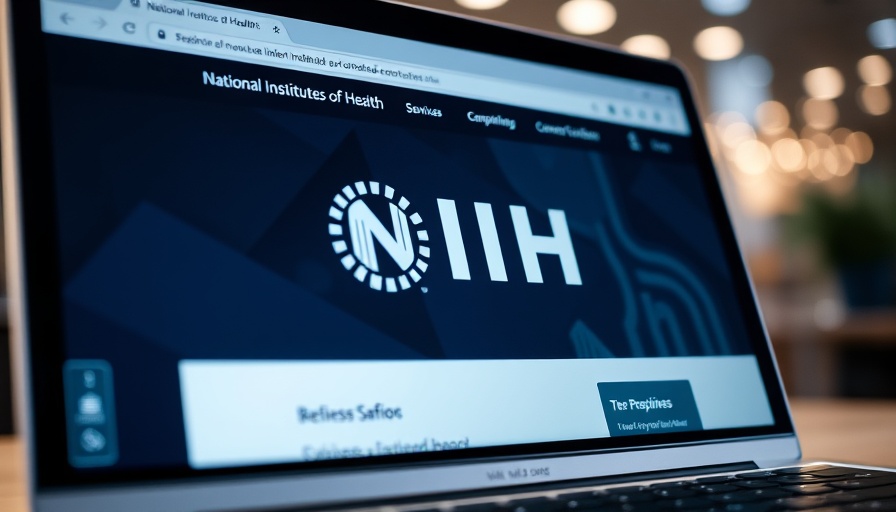
NIH Reverses Course on Grant Cancellations
In a significant turnaround, the National Institutes of Health (NIH) has ceased the termination of biomedical research grants after a ruling from U.S. District Judge William Young declared such cancellations illegal. This directive follows a lawsuit initiated by researchers and state attorneys general, resulting in the restoration of over 900 grants critical to various medical fields, including diversity in health research.
The Impact of Judicial Oversight on Medical Research
This legal development highlights the essential role that the judiciary can play in safeguarding scientific inquiry. With more than 2,600 NIH grants totaling close to $9 billion terminated since January 2017, the implications of this ruling are vast. Many grants that had faced cancellation were crucial for research areas like LGBTQ+ health and diversity, both of which are pivotal in delivering comprehensive healthcare solutions.
Research Funding's Role in Public Health
The NIH’s decision to halt grant cancellations not only restores funding to critical projects but also sends a message about the importance of scientific rigor and unbiased research in public health. The agency’s commitment to scientific outcomes over ideological grounds was reaffirmed, emphasizing that effective treatment protocols and health advancements hinge on inclusive research priorities.
What This Means for Future Research
As the NIH reevaluates its funding strategy, researchers are encouraged to continue pursuing innovation in these essential fields. The reinstated grants signal a renewed opportunity for studies that address health disparities, paving the way for breakthroughs that could transform health outcomes for marginalized populations.
Stay Informed and Engaged
The shifting landscape of healthcare funding underscores the need for public vigilance in holding agencies accountable. For readers keen on understanding how these changes impact their health, it is crucial to stay informed. Keeping abreast of grants and research developments will empower individuals to advocate for equitable health solutions.
For anyone seeking further information about prescription drug safety, including side effects and interactions, feel free to contact us for more details. Your health and informed choices are paramount.
 Add Row
Add Row  Add
Add 




Write A Comment